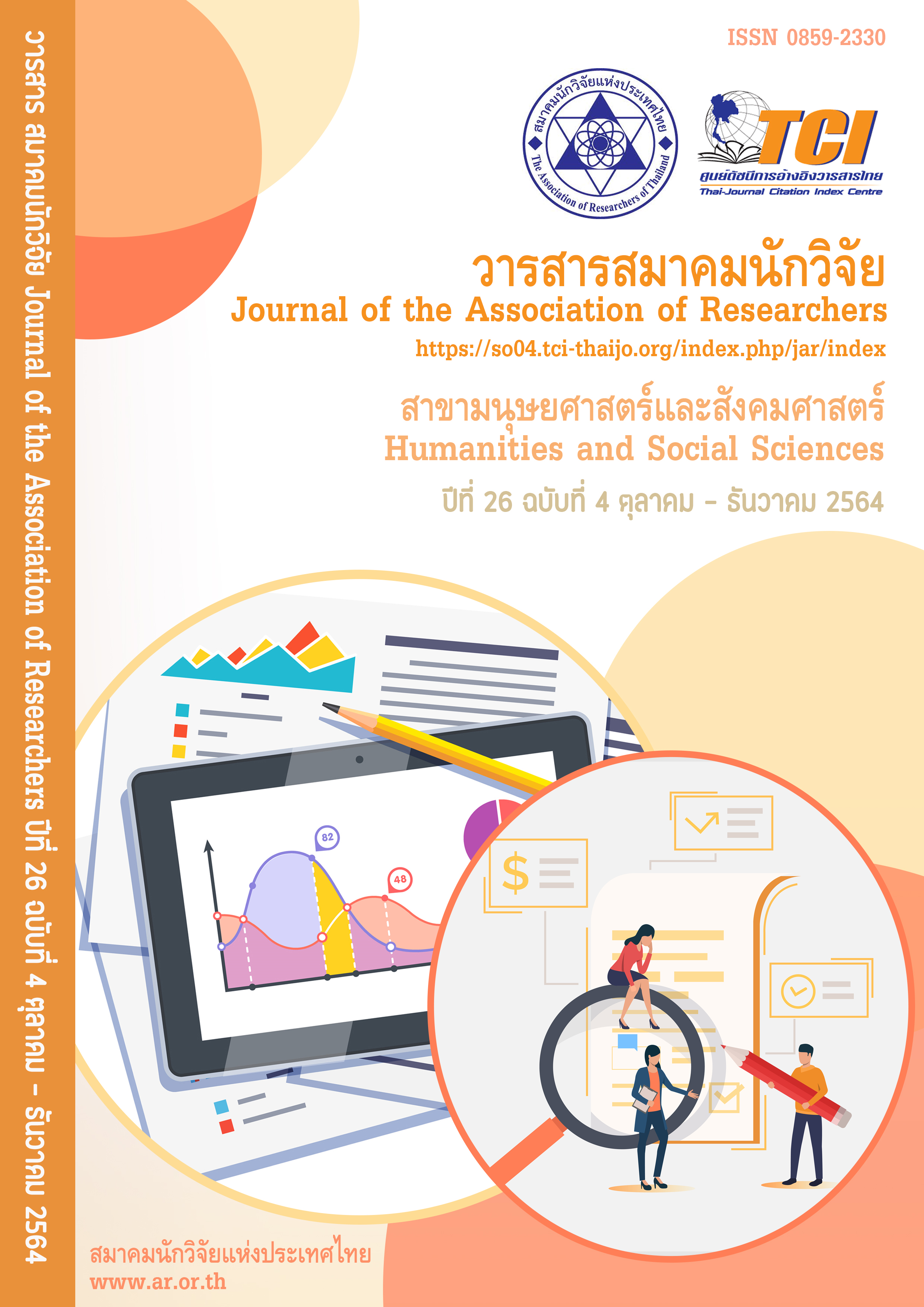The Apology Strategies of Thai Language’s Japanese Learner
Main Article Content
Abstract
This article aims to study the apology strategies and the uses of apologizing of the Japanese learners studying the Thai language. A select group of 30 learners having a Thai language proficiency at moderate to high level was studied by using the Discourse Completion Test (DCT) as a research instrument.
The result revealed that there are 12 strategies and the frequencies to use them respectively as follows: 1) the use of apology, 2) the explanation of apology, 3) the compensation, 4) the self-reproach, 5) the pledge, 6) the unintended expression, 7) the specifying of relation, 8) the asking for help, 9) the expression of concern, 10) the suggestion, 11) the ascertaining of situation, and 12) the use of condition. Moreover, the strategies and the uses of apologizing were related to the three cultures including the relationship maintenance, the responsibility and the polite expression which the Japanese learners often adapt to use as a concept of using the apology in the Thai language.
Article Details
บทความที่ปรากฏในวารสารนี้ เป็นความรับผิดชอบของผู้เขียน ซึ่งสมาคมนักวิจัยไม่จำเป็นต้องเห็นด้วยเสมอไป การนำเสนอผลงานวิจัยและบทความในวารสารนี้ไปเผยแพร่สามารถกระทำได้ โดยระบุแหล่งอ้างอิงจาก "วารสารสมาคมนักวิจัย"
References
จีรรัตน์ เพชรรัตนโมรา. (2544). การศึกษาการแสดงการขอโทษของผู้พูดที่มีสถานภาพต่างกันในภาษาไทย (วิทยานิพนธ์ปริญญามหาบัณฑิต ฉบับไม่ได้ตีพิมพ์). จุฬาลงกรณ์มหาวิทยาลัย, กรุงเทพฯ.
ทัศนีย์ เมฆถาวรวัฒนา. (2541). วัจนกรรมการขอโทษในภาษาไทย. (วิทยานิพนธ์อักษรศาสตรมหาบัณฑิต). จุฬาลงกรณ์มหาวิทยาลัย.
ปนัดดา ศิริพานิช. (2550). คำเรียกขานอาชีพและตำแหน่งในภาษาญี่ปุ่นและภาษาไทย. (วิทยานิพนธ์อักษรศาสตรมหาบัณฑิต สาขาวิชาภาษาและวรรณคดีญี่ปุ่น). จุฬาลงกรณ์มหาวิทยาลัย.
ยิ่งยศ กันจินะ. (2561). “กลวิธีความสุภาพในบันทึกแบบไม่เป็นทางการ.” วารสารภาษาและวัฒนธรรม 37 (2): 35-60
วรวรรณ เฟื่องขจรศักดิ์. (2548). ศึกษาเปรียบเทียบกลวิธีการขอโทษของคนญี่ปุ่นและคนไทย. (วิทยานิพนธ์ศิลปศาสตรมหาบัณฑิต). มหาวิทยาลัยธรรมศาสตร์.
Abe, H. (2017). The Realization of the Apology Speech Act in English by Japanese Speaker: Cross-Cultural Differences, Pragmatic Transfer, and Pedagogical Implications. (Doctor of Philosophy Thesis). The Graduate School of Literary Studies English
Doshisha Women's College of Liberal Arts.
Austin, J. L. (1962). How to Do Things with Words. Oxford.
Barlund, D., & Yoshioka, M. (1990). Apologies: Japanese and American styles. International Journal of Intercultural Relations, 14, 193-206.
Brown, P., & Levinson, S. (1978). Universals in Language Usage. Cambridge
Hefstede, G. J., and M. Minkov. (2010). Cultures and Organizations: Software of the Mind: Intercultural Cooperation and its Importance for Survival. New York: Mcgraw Hill.
Hidaka, Y. 2017. “On the express of apology in Japanese, gomennasai and gomen - an approach from politeness theory.” The journal of International Media, Communication, and Tourism Studies 24: 39-55.
Holmes, J. (1990). Apologies in New Zealand English. Language in Society, 19,155-199.
Horie, I. P. (1993). Apology. A Comparative Study on Apologetic and Behavioral Expression in Thai and Japanese. Report of the National Language Institute, 105 (14), 403-438
Ide, S. (1982). “Japanese sociolinguistics: politeness and women's language.” Lingua 57 (2-4): 357-385.
Ikeda, R. (1993). “Constrative study of apologies- study of Japanese and America- face perspective.” Japanese study, 12 (12),13-21.
Kuo, P. (2013). The discourse structure of apology of Japanese university students: focusing on impacts of the social factors. Meikainihongo,18, 251-258.
Long, C. (2010). “Apology in Japanese gratitude situations: The negotiation Of interlocutor Role-relationship.” Journal of Pragmatics 42: 1060-1075.
Obuji, K. (2015). The way to apologize successfully. CCC MEDIA HOUSE.
Searl, J. R. (1969). Speech Acts: An Essay in the Philosophy of Language.
Trosborg, A. (1995). Interlanguage pragmatics: requests, complaints, and apologies. New York: Mouton de Gruyter.
Translated Thai References
Fuangkajonsak Worrawan. (2005). A comparative study of strategies used in apology by Japanese and Thais. Thammasat University.
Kanchana Yingyot. (2018). “Politeness Strategies in informal memorandum.”Journal of Language and Culture 37 (2): 35-60.
Makthavornvattana Thasanee. (1998). The speech act of apologizing in Thai. A Thesis Submitted in partial Fulfilment of the Requirements for the Degree of Master of Arts in Linguistics. Chulalongkorn University.
Patcharatmora Jeerarat. (2001). A study of making apologies in Thai by speakers of different social status. Chulalongkorn University.
Siriphanich Panatda. (2007). Occupatipnal and Positional Terms of Address in Japanese and Thai. the degree of master of arts program in Japanese language and literature department of eastern languages, Faculty of art, Chulalongkorn University.


